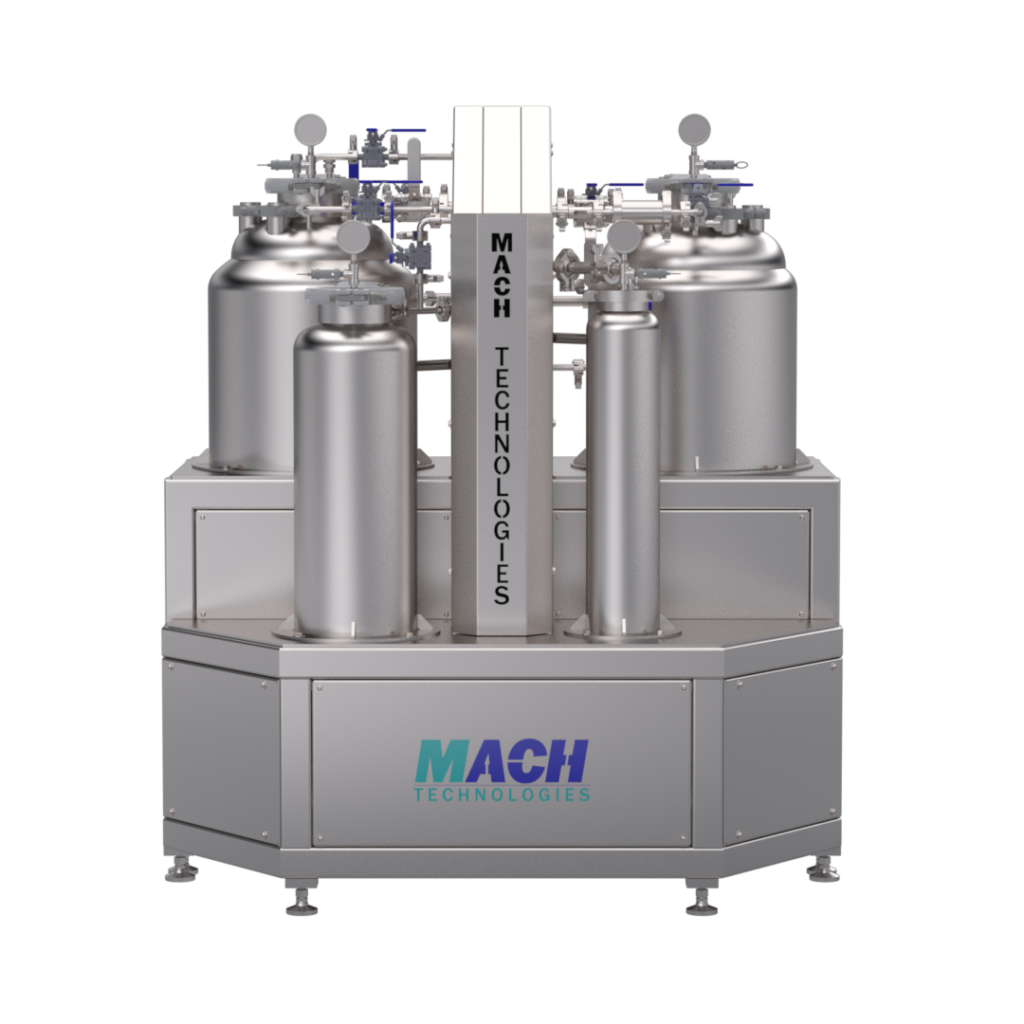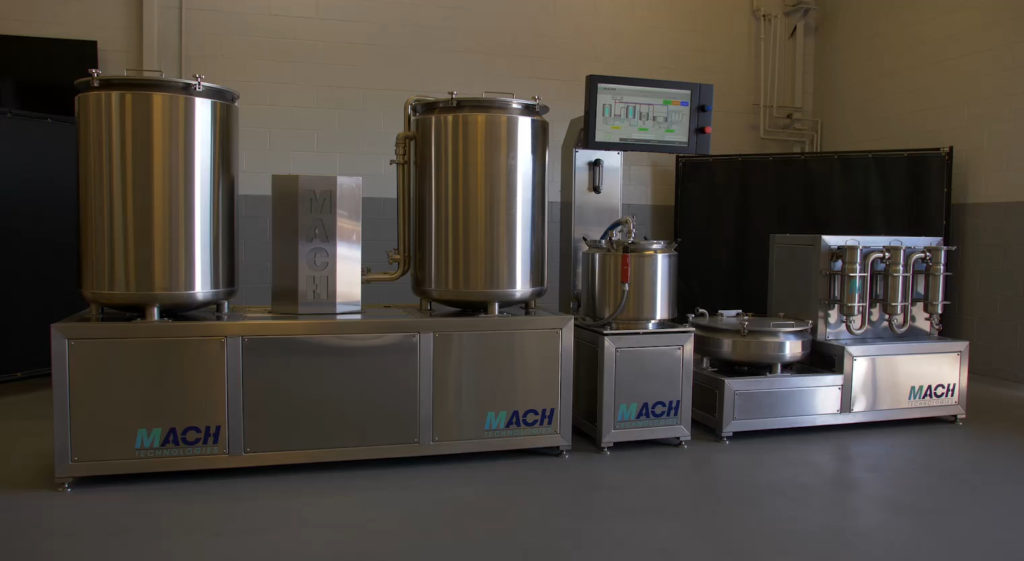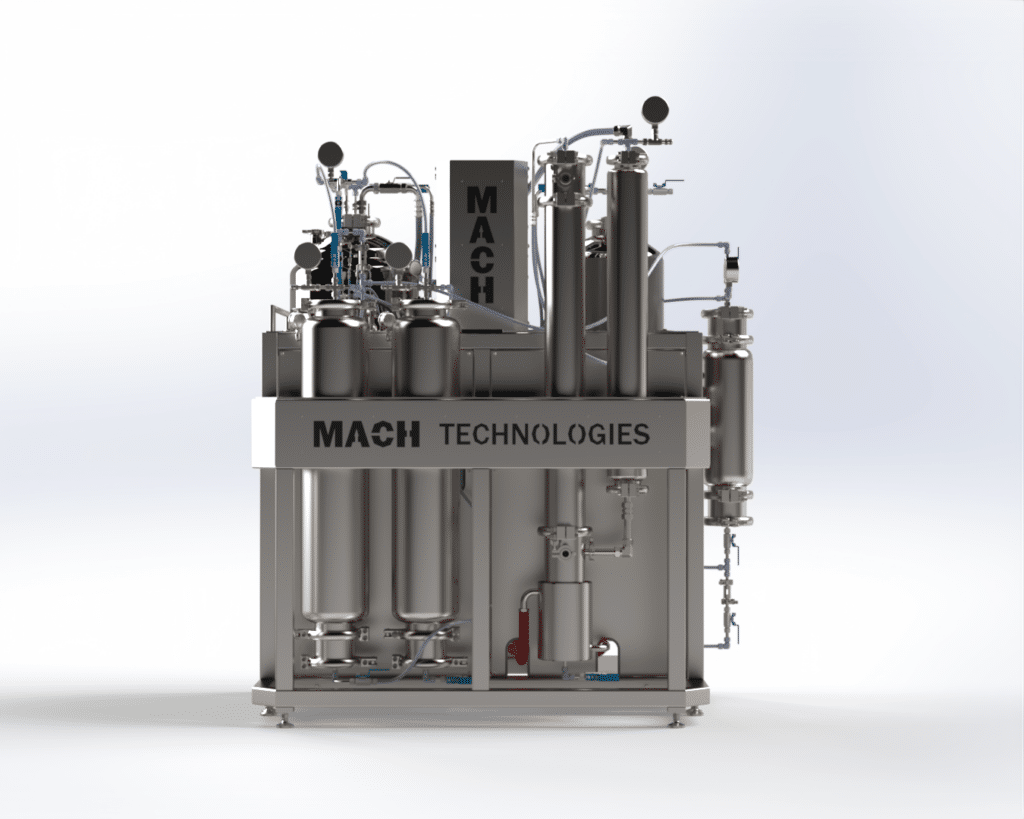Is Hydrocarbon Extraction a Scalable Method?

Hydrocarbon extraction, known for its efficiency in preserving terpenes and extracting a full spectrum of cannabinoids, presents unique opportunities and challenges in terms of scalability.
While this method can be scaled up to handle larger production volumes, it requires careful consideration of equipment, space, and safety protocols.
Comparatively, a method like ethanol extraction, known for its ability to process large batches of plant materials efficiently, is preferred for large-scale operations as it doesn’t demand the same level of complexity in equipment and safety measures.
Still, if your end goal is to produce high-end, boutique products like shatter and live resin on a large scale, hydrocarbon extraction may be your best method.
In this article, we’ll highlight what’s needed to maximize yield while maintaining quality in hydrocarbon extraction.
Steps for Maximizing Yield & Improving Efficiency
1. Upgrade to a Larger Extraction Vessel or Invest in Multiple Extraction Vessels

Increasing the size of your extraction vessel allows you to process larger quantities of plant material per batch, and it can simplify the extraction process as it involves managing and maintaining just one system. However, the scalability is somewhat limited by the size of the largest viable vessel and the batch processing nature of the operation. It also means the entire production can be halted if the single vessel requires maintenance or faces operational issues.
Alternatively, you could invest in multiple extraction vessels, which will also increase throughput. This setup allows different batches to be processed simultaneously, potentially with varying strains or product types. It also provides a form of redundancy—if one vessel needs maintenance or encounters an issue, others can continue to operate, minimizing downtime. Despite the benefits of this approach, it requires more space and can increase complexity regarding system management and workflow coordination.
It’s also important to note that you should always purchase ASME-certified vessels. The ASME certification indicates that the vessel is designed and constructed to handle the specific pressures and conditions of hydrocarbon extraction and ensures safety and compliance with industry standards.
2. Invest in Automated Equipment
Automation also plays a pivotal role in enhancing efficiency, quality, and consistency in hydrocarbon extraction.
Several types of equipment can be automated, including:
- Extraction Vessels: Automated vessels can precisely control temperature, pressure, and solvent flow.
- Solvent Recovery Systems: These systems control temperature and pressure to recover and recycle solvents efficiently and help reduce waste.
- Purging & Evaporation Equipment: Automated purging systems ensure consistent and thorough solvent removal in extracts, which is crucial for product safety and compliance.
- Filtration Systems: Automated filtration can enhance the purity of the extract by removing unwanted plant materials, fats, and waxes without manual intervention.
- Post-Processing Equipment: Automated systems for winterization and distillation will also ensure consistent product quality.
- Safety & Monitoring Systems: These systems will detect gas leaks and ventilation issues, and are needed in processes like hydrocarbon extraction where flammable solvents are used.
- Data Logging & Process Monitoring: Advanced automation systems can record and monitor process parameters, providing valuable data for quality control, troubleshooting, and process optimization.
When investing in automated equipment, ensure the system you choose meets present requirements and is scalable, so if you decide to grow your operation in the future, you won’t need to invest in a new system.
You also need to have the space and infrastructure to implement automated systems, such as ventilation, safety systems, and power supply, and skilled operators who are well-trained in running and supervising automated systems.
3. Build a Closed-Loop System

Transitioning to or reinforcing a closed-loop hydrocarbon extraction system is another critical step. These systems recirculate the solvent in a sealed environment, minimizing solvent loss and enhancing safety by reducing the risk of solvent exposure and flammability.
In a closed-loop system, the process begins by loading the prepared plant material into the extraction vessel. The solvent is then transferred from the solvent tank into the extraction vessel. In a closed-loop system, the solvent is cooled and pressurized before it enters the extraction vessel.
After the solvent carries the extracted compounds, it moves to the collection vessel, passing through filters to remove unwanted plant material.
When it reaches the collection vessel, heat evaporates the solvent and creates the extract. The solvent vapors are pulled into the condenser by the recovery pump. In the condenser, the solvent vapors cool and condense back into liquid form, which is then transferred back to the solvent tank for reuse, completing the recycling loop. The remaining cannabis extract in the collection vessel undergoes further processing until the end product is created.
Factors to Consider Before Scaling
- Quality Control Procedures: Do you have robust quality control measures in place? As production scales, maintaining consistency in product quality is crucial. Ensure there are standardized procedures and regular testing to guarantee each batch meets the set requirements for potency, purity, and safety.
- Space Requirements: Do you have enough space for the expansion? Scaling up often means more equipment, larger storage areas, and additional space for processing and handling increased product volumes. Evaluate if your current facility can accommodate this growth or if a new space is needed.
- Supply Chain Robustness: Can your supply chain handle increased production demands? Ensure you have reliable access to high-quality raw materials in larger quantities. An efficient supply chain is essential to sustain increased production levels without compromising quality.
- Waste & Solvent Recovery System: Do you have an efficient waste management and solvent recovery system? A bigger operation means more waste and solvent usage. Implementing effective recovery and recycling systems is not only environmentally responsible but also cost-effective.
- Skilled & Trained Staff: Do you have a workforce capable of handling larger production scales? Ensure you have enough trained staff and consider investing in additional training to meet increased production demands.
- Legal Compliance: Do you have a dedicated point of contact or team to keep up with changing laws? Cannabis regulations can vary and change rapidly at local, state, and federal levels. Having a dedicated team ensures your operation remains compliant and is prepared for regulatory changes.
- Investment in Research & Development: Do you have the resources to invest in R&D? Scaling isn’t just about producing more—it’s also about staying competitive. Investing in R&D allows you to develop new recipes, improve product quality, and explore new market opportunities.
Scale Your Production With Help From MACH Technologies
If you’re thinking about scaling your production, our team at MACH Technologies is ready to help. We engineer and manufacture a wide range of fully automated ethanol, solventless, and hydrocarbon extraction equipment.
Our line of hydrocarbon extraction equipment includes the MHES, a closed-loop system featuring ASME-certified vessels that can safely run 100% propane, 100% butane, or a blend. The holding and collection tank within the system provides a 10:1 flower ratio and a 95% extraction efficiency rate. In addition to the MHES, we design and sell Class 1 Division 1 modular equipment enclosures that include LED lighting, alarms, light signal devices, and more.
Additionally, as a turnkey partner, we can do much more than help you find the right equipment—our specialists can help you implement these solutions into your plant, train system operators, and provide ongoing, long-term support.
Contact us today to learn more about our capabilities or to request more information on our MHES system.
